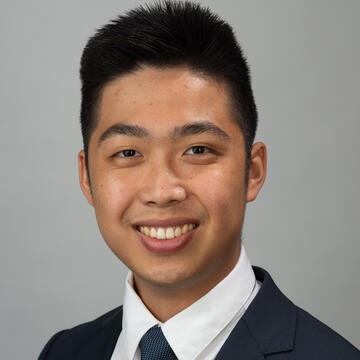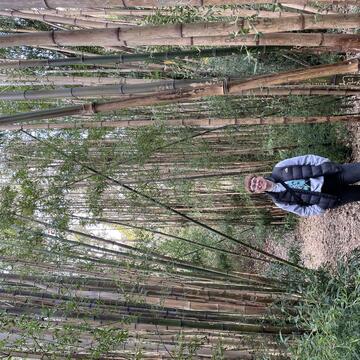
Making an Impact on Eco-Policy
Third-year law student Hubert Liu was steeped early in the culture of Earth stewardship at his Buddhist boarding school in Northern California. “We learned about recycling, and they had us watch environmental documentaries” like Al Gore’s An Inconvenient Truth. Liu gravitated toward AP environmental science classes in high school. “It seemed like the world was heading toward a depressing future if we don’t do anything about it, and it got me thinking about doing something in that context.”

It wasn’t until he finished undergrad that the idea of making an impact by studying environmental law intrigued him. At that time, he learned his vision of environmental justice was shared by his father, who runs a melamine manufacturing business in China, and is working with researchers to develop a more eco-friendly alternative from renewable materials. Encouraged by environmental law Professor Alice Kaswan last spring, Liu hopes to land an environmental law externship before graduation, and has joined a working group to promote sustainability on campus as part of a global Vatican initiative among Catholic universities. He recently crossed paths in Moot Court with Clare Henry ‘24, whose undergraduate studies in public health intersected often with environmental justice issues.
Growing up north of Seattle, the outdoors were an important facet of Henry’s childhood, with plenty of hiking and camping on the Olympic peninsula and along the Oregon coast. She was similarly inspired by Professor Kaswan, faculty advisor for the school’s environmental law club and highly-sought climate change speaker. Henry landed a summer research position supporting Kaswan’s work with the Center for Progressive Reform (CPR), and was tasked with capturing public comments regarding the California Air Resources Board (CARB) Draft Scoping Plan, with its primary goal of achieving carbon neutrality by 2045. The assignment involved poring over submissions from more than 100 organizations and stakeholders, including advocacy groups like the Sierra Club, utility firms like PG&E, biofuel investors, and individuals such as the mayor of Hayward. Concerns about the Draft Plan included frustration about the perceived lack of urgency, vague implementation measures, and reliance on unproven science such as carbon capture technology. The CPR published Henry’s analysis in a September blog, although it won't be until later this year when CARB releases the final Plan that we will know what influence the comments had.

“This generation will face formidable environmental and legal challenges,” says Kaswan, who has been impressed by both students’ interest and contributions. She is orchestrating a discussion during the launch of USF’s One Earth Initiative on October 15 as part of Global Climate Change Week celebrations, as well as an October 19 panel on climate action progress. “I’m proud to see our students step up with such courage and determination.”